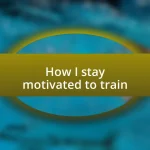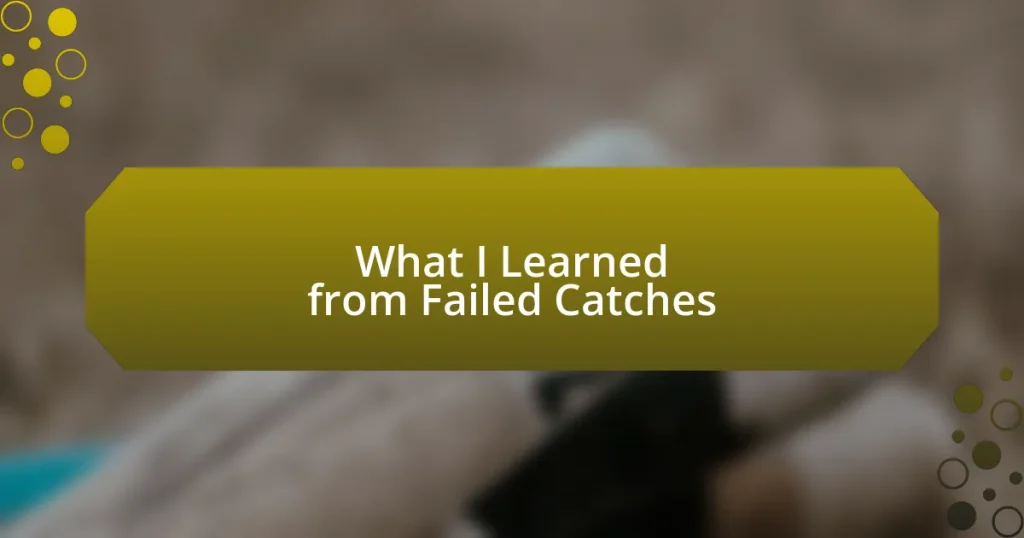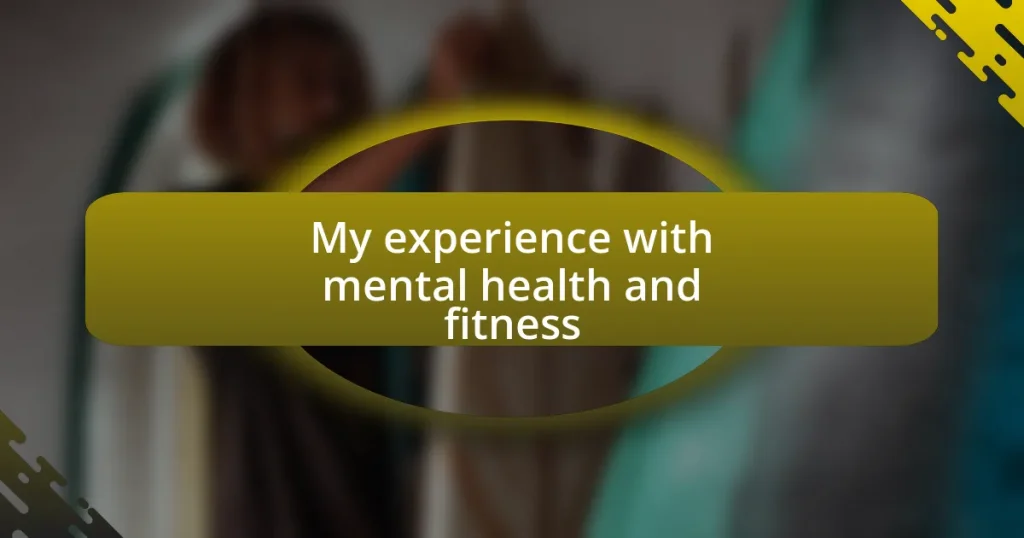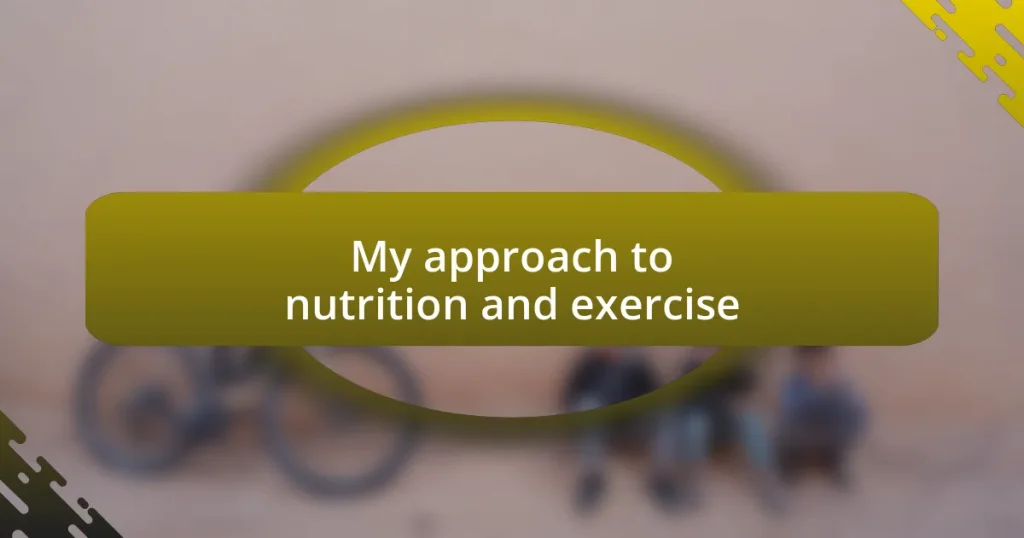Key takeaways:
- Failure should be seen as a learning opportunity and a necessary part of personal growth.
- Common scenarios leading to failure include overconfidence, poor communication, and distractions; these can be mitigated through preparation and focused teamwork.
- Introspection and reflection on past mistakes can help identify triggers and improve future performance.
- Building resilience involves embracing vulnerability, maintaining a growth mindset, and setting realistic goals after setbacks.
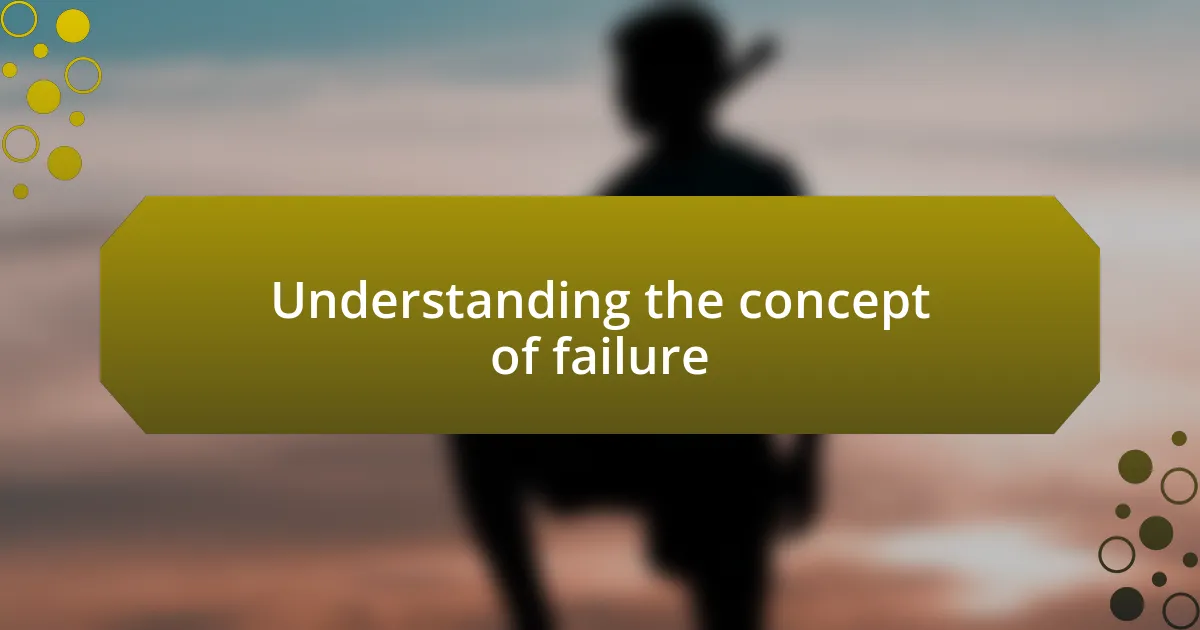
Understanding the concept of failure
Failure is often viewed through a negative lens, but I’ve come to realize that it’s not the end; it’s a chapter in my learning journey. I remember missing a critical opportunity early in my career, and it stung deeply, making me question my abilities. However, that setback forced me to reevaluate my strategies and ultimately led me to discover paths I would have never considered otherwise.
Looking back, I see failure as a mirror reflecting my own limits and fears. Have you ever felt that crushing sensation when things don’t go as planned? In those moments, I learned more about my resilience and the need to adapt. The truth is, embracing that vulnerability can be liberating, paving the way for growth I’d previously thought impossible.
It’s fascinating how our relationship with failure can shape our perspectives. I once chatted with a mentor who shared his own tales of missteps, highlighting that every stumble brought invaluable lessons. This made me ponder: What if we celebrated failure like success, understanding that it’s an essential part of our evolution? By reframing our experiences, we can nurture a mindset that views failure not just as an obstacle but as a catalyst for personal development.

Analyzing common failure scenarios
It’s eye-opening to analyze the scenarios where failed catches occur. One common situation is when we become overconfident in our abilities, leading us to underestimate challenges. I remember a moment when I casually approached a complex project, thinking my experience would carry me through. Unfortunately, I missed crucial details, resulting in a disappointing outcome. This experience taught me the importance of humility and thorough preparation, ensuring I never make that mistake again.
Another frequent failure scenario arises from poor communication within a team. I once worked alongside a group where everyone assumed their roles were clear, but we ended up stepping on each other’s toes. The confusion led to overlapping efforts and ultimately, a significant oversight. It was a tough lesson about the value of open dialogue, reminding me that clarity can prevent missteps and create a more cohesive team environment.
Lastly, distractions can play a powerful role in failure. I distinctly recall a time when I was juggling multiple tasks, only to realize too late that my divided attention caused a major error in execution. This taught me that focus is key; dedicating my full attention to one task not only improves my efficiency but also minimizes the risk of failure.
| Failure Scenario | Key Takeaway |
|---|---|
| Overconfidence | Emphasize preparation and humility |
| Poor Communication | Prioritize dialogue for clarity |
| Distractions | Maintain focus on one task at a time |
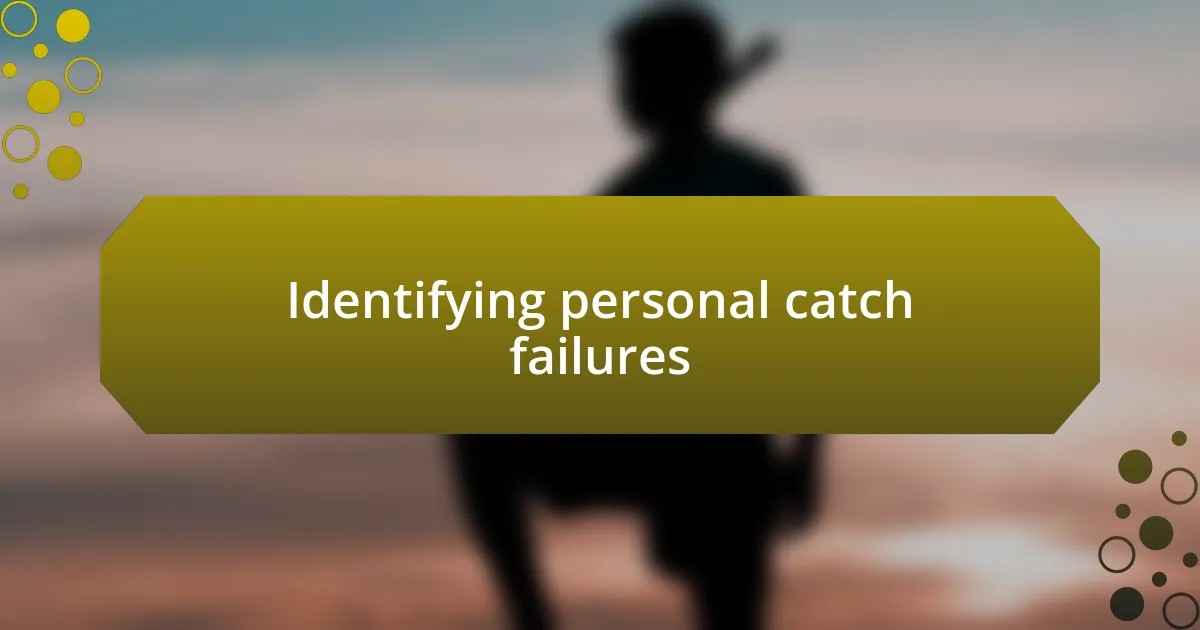
Identifying personal catch failures
Recognizing personal catch failures requires a bit of introspection. For me, one of the biggest wake-up calls was during a presentation where I thought I had everything mapped out. I felt confident, almost invincible as I spoke. But when a key question popped up, I stumbled, leaving me feeling exposed and embarrassed. That moment highlighted how vital it is to genuinely prepare and anticipate challenges instead of relying solely on past achievements.
Pinpointing the triggers of my failures often involves reflecting on specific instances that challenged me. Here are some factors I’ve identified that contributed to my catch failures:
- Lack of Preparation: I often skimmed over crucial details, believing I could wing it based on previous experiences.
- Emotional State: When I was stressed or distracted, my ability to catch important information significantly diminished.
- Assumptions: I found myself assuming others understood my perspective, leading to miscommunications that derailed projects.
- Time Mismanagement: Rushing to meet deadlines often resulted in sloppy work, and I learned the hard way that haste makes waste.
Each failure taught me something valuable, sparking growth and a more thoughtful approach in my endeavors.
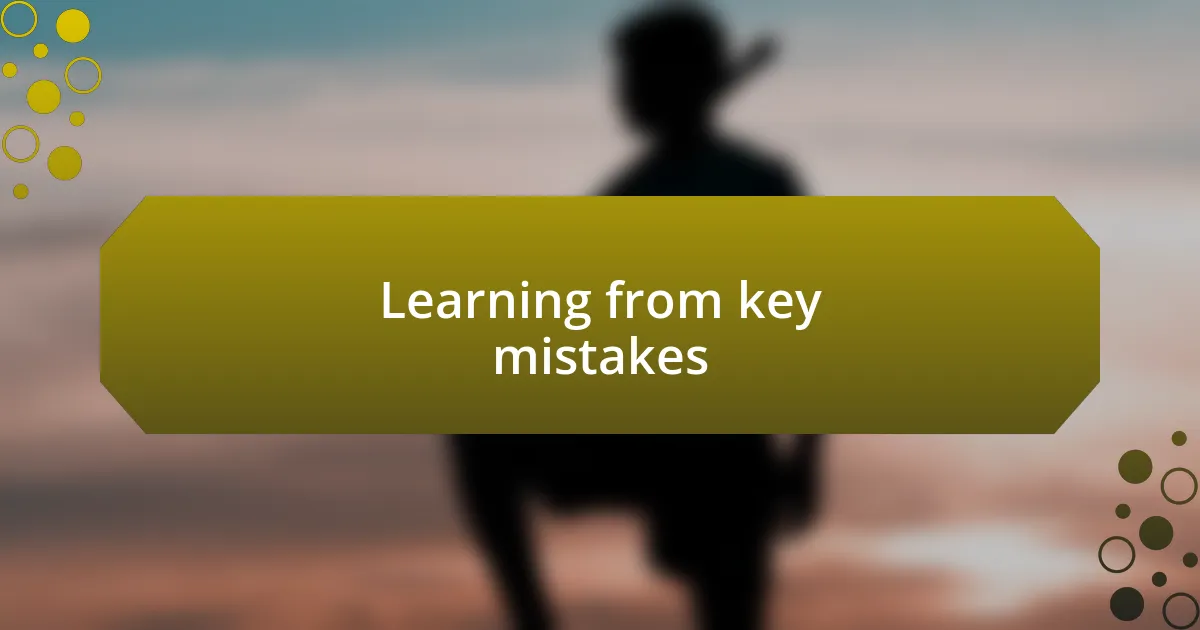
Learning from key mistakes
It can be eye-opening to look back at my missteps, especially when I realize how they’ve shaped my approach. For instance, during a team collaboration, I once hesitated to voice my concerns about a project. That oversight led to a major oversight, and I felt a mix of disappointment and frustration. Why did I hold back? I learned that my silence compromises not just my contributions but the team’s outcome.
One particular mistake sticks with me—neglecting to clarify expectations with a colleague. I assumed we were on the same page, only to find that we had drastically different interpretations of the project. The fallout? A week of wasted effort and a sense of regret that was hard to shake off. This experience reinforced the lesson that clear communication is essential; it’s a key ingredient in preventing misalignment and ultimately, failure.
Feeling the sting of a missed opportunity can be a tough pill to swallow. There was a time I underestimated the power of feedback after submitting a report, thinking my work was flawless. When my supervisor pointed out several gaps, I felt crushed. However, embracing that feedback taught me resilience and the importance of seeking input along the way. Each mistake, coupled with reflection, brings me closer to mastering the art of catching potential pitfalls before they become overwhelming challenges.
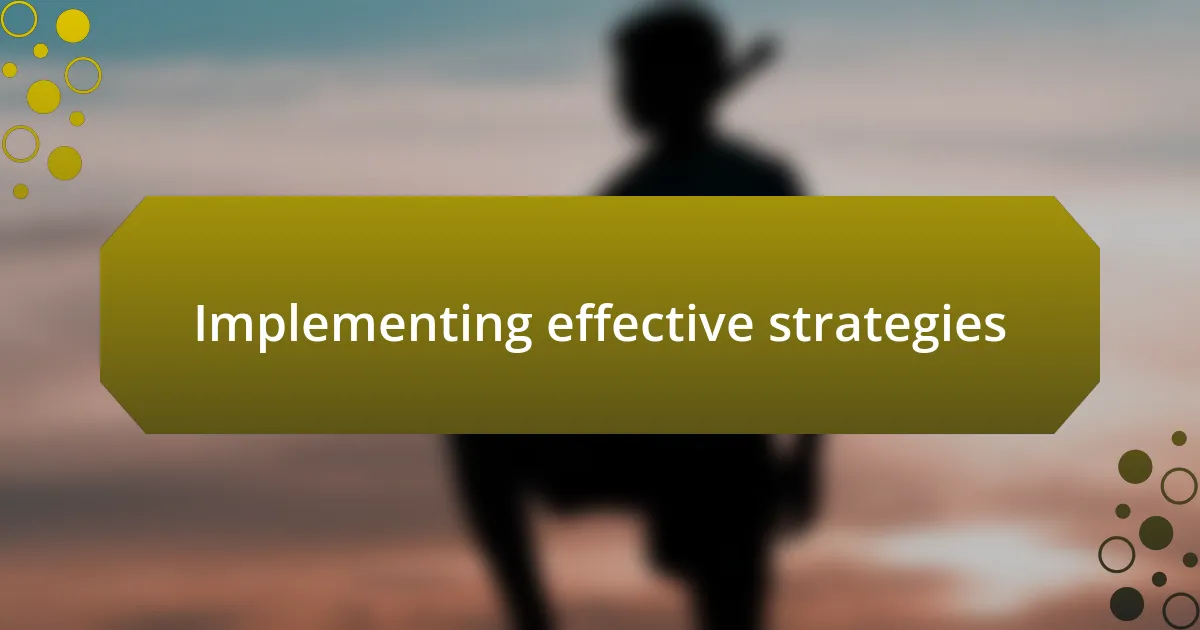
Implementing effective strategies
Implementing effective strategies often starts with understanding what went wrong in previous efforts. I recall a project where we faced significant delays because of my ad-hoc scheduling. Looking back, I realized that a structured timeline could have kept everyone aligned and accountable. It begs the question: how often do we truly evaluate our planning processes?
One critical strategy I’ve embraced is fostering open dialogue. In a prior role, I initiated weekly check-ins with my team. I was surprised at how quickly this created an environment of trust and transparency. Each meeting wasn’t just about updates; it evolved into a space where we could discuss challenges freely. This shift not only improved our productivity but also strengthened our collaboration. Isn’t it fascinating how something as simple as regular communication can transform team dynamics?
Finally, I started to incorporate a system of constant reflection on project outcomes. After a particularly challenging campaign, I led a post-mortem session where we dissected everything from conception to execution. The findings were invaluable. Not only did they highlight our strengths, but they also pinpointed areas of improvement that we hadn’t recognized. This practice has taught me that effective strategies don’t just emerge from successes; they often stem from dissecting failures with an open mind. How often do you take the time to reflect on your results?

Moving forward after failure
It’s essential to recognize that failure can serve as a powerful teacher if we allow it to. After missing a major deadline on a key project, I found myself feeling disheartened and anxious about the repercussions. However, as I took the time to review not just the timeline but my emotional response, I realized that my fear of judgment paralyzed my ability to innovate. By shifting my mindset to see failure as a stepping stone rather than a stopping point, I began to embrace risks more effectively. Have I learned to dance with discomfort instead of shying away from it?
Understanding the role of emotional resilience is also vital in moving forward. There was a time when I faced the criticism of a flawed presentation I had given. Initially, it felt overwhelming, and I found myself questioning my abilities. Yet, as I processed those feelings, I learned to separate my self-worth from my performance. This distinction has been liberating; it empowered me to take constructive feedback without internalizing failure. How often do we tie our identity to our setbacks instead of recognizing the opportunity for growth?
Moreover, I’ve found that setting new, realistic goals after a disappointment is crucial. I remember finishing a project that didn’t meet its objectives and felt tempted to retreat. Instead, I diverted that energy toward creating a fresh action plan with attainable milestones. It not only redirected my focus but also reignited my motivation, encouraging me to keep pushing forward. This experience taught me that moving on doesn’t mean forgetting; it’s about channeling past lessons into future endeavors. What new goals have you set for yourself after a setback?

Building resilience and confidence
Building resilience and confidence goes hand in hand with how we respond to failures. I remember a time when I fumbled during a crucial negotiation, feeling the weight of embarrassment as I left the room. Instead of letting that moment define my capabilities, I took a step back, processed what went wrong, and made a conscious decision to prepare more thoroughly next time. That experience not only toughened my resolve but also helped me cultivate a belief that I could master difficult situations in the future.
I often reflect on how embracing vulnerability can reinforce our resilience. After another setback in a team project, I chose to share my feelings of inadequacy with my colleagues during a brainstorming session. To my surprise, they not only empathized but also acknowledged their own struggles. This open dialogue fostered a supportive atmosphere where we learned from each other, boosting our collective confidence. How often do we realize that vulnerability can actually strengthen our bonds and resilience?
In times of failure, I’ve found that maintaining a growth mindset is paramount. I recall a project that fell short, and initially, I felt like giving up. But instead of withdrawing, I engaged in self-reflection and asked myself what I could learn from that experience. By viewing each setback as an opportunity to grow, I started embracing challenges more readily. Isn’t it fascinating how reframing our perspective can turn failures into powerful catalysts for personal growth?





